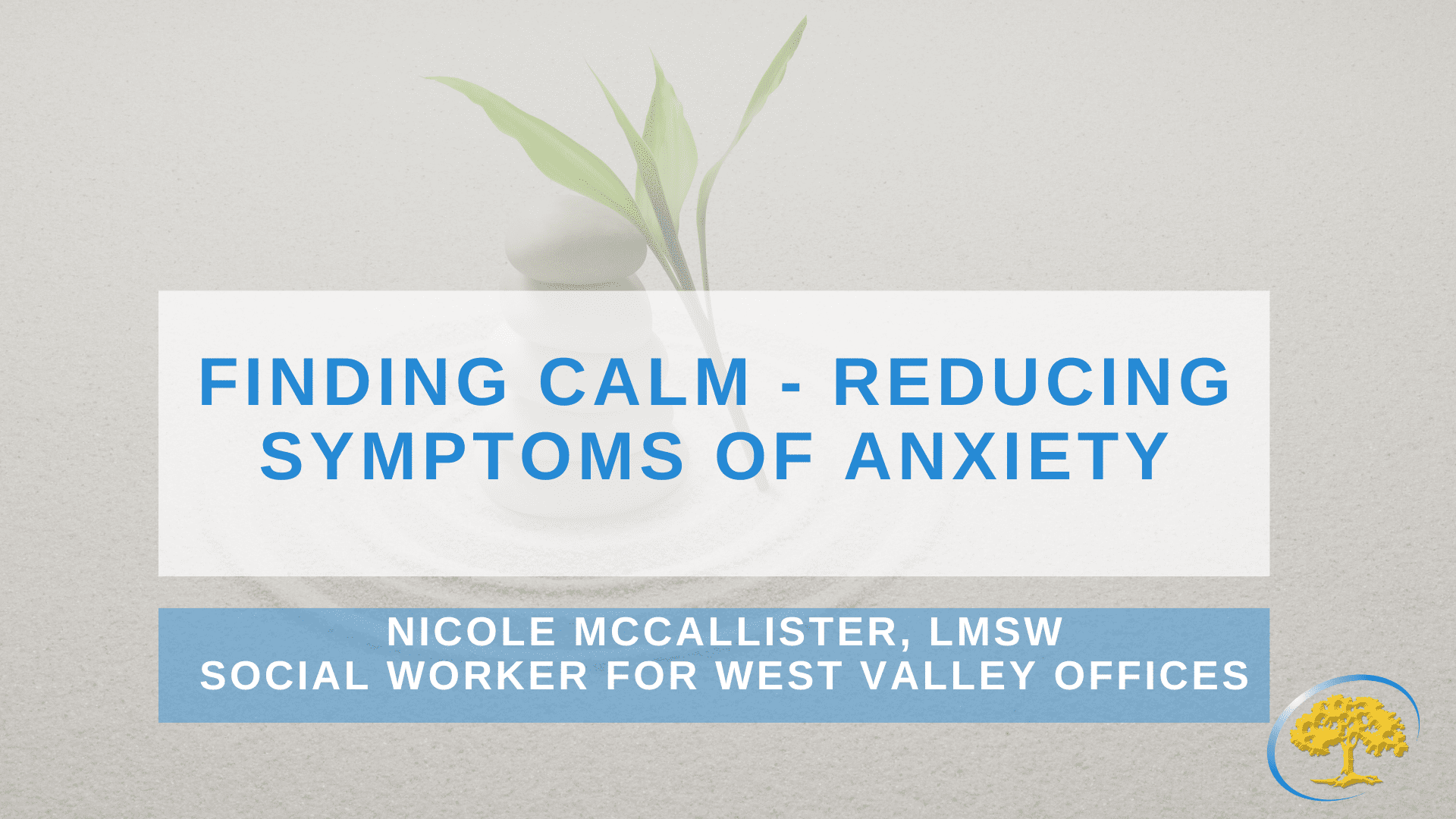
Posted 3 years ago
Finding calm – reducing symptoms of anxiety
Do you have trouble staying asleep at night? Do you find it hard to relax? Have you felt like electricity is running through your body? Does your heart pound when you are experiencing stress? Do you have trouble with racing and repeating thoughts? If your answer is yes to any of these symptoms, you may be experiencing anxiety.
Anxiety is a fear, dread or uneasiness that cause you to have physical and emotional symptoms. Occasionally feeling anxious is normal and most people experience it at some point in their life.
Anxiety is more prevalent for those facing a diagnosis of cancer and pursuing treatment of that disease. There are many occasions where a person with cancer may be triggered to have. Some of these triggers include completing a scan to determine if cancer is present, waiting for test results, hearing a new or changing cancer diagnosis from a provider, during treatment and fear of recurrence for survivors.
Additional anxiety signs and symptoms include:
Having a sense of impending danger, panic, or doom
Breathing rapidly (hyperventilation)
Sweating
Trembling
Feeling weak or tired
Trouble concentrating
Experiencing gastrointestinal (GI) problems
Having the urge to avoid things that trigger anxiety
It is always good to try things to manage your anxiety on your own, in those moments when those feelings of distress present themselves. The Social Workers at Ironwood and your medical team can assist you with some coping skills. However, here are a few things you can try at home.
Get to know your anxiety. Take some time and make a list of things that trigger your anxiety. Carry it with you so if panic strikes, you can stop and identify what may be causing this. Ask your friends and family for their perspective. Often those persons who love and care for us, see things from a different view.
Be kind to your self and give yourself some grace. We all deserve time for self-care. Take at least 15 minutes a day to practice wellness or enjoy a peaceful activity.
When that feeling of tension arises, practice a tactile activity. These include hands on activities that require our brain to concentrate, which can shift the focus from a cause of anxiety to the task at hand. Tactile activities also include a physical, hands-on component. These do not include reading a book or watching television. Good examples of tactile activities are building with Legos, sorting coins or colored beads, and using a stress ball or squeezing a pile of puddy. These activities require some time, longer than a few minutes, to change the focus of your brain and release that feeling of tension in your body.
Practice positive self-talk. Be mindful of negative talk or feelings that present in your daily life. Find new and positive ways to look at a situation that triggers anxiety. Acknowledge your thoughts and determine if there is truth behind it.
Planning for and living a healthy lifestyle is good for reducing anxiety. Stay active. When anxiety hits, get up and get moving. Seek out fresh air. Discuss your diet with your doctor or dietitian and make choices to eat well. Spend time outdoors and experience nature. If you cannot physically go outside, find a Zen or Nature channel on YouTube. They play for hours uninterrupted and take you into nature through audio and visual effects. Spend time with family and friends who are supportive and encourage positive wellbeing. Try a new hobby or revive an old one that brings you joy.
Progressive muscle relaxation – Find a quiet location and close your eyes. Slowly tense and then relax each of your muscle groups for three seconds. Focus on all parts of your body from your toes to the top of your head. It helps to follow the pattern of your body and repeat the behavior on areas that need additional focus.
When should you see a doctor or professional for anxiety?
You feel like you are worrying too much, it is interfering with your work, and with personal or professional relationships
Your fear, worry or anxiety is upsetting to you and difficult to control
You feel depressed, have trouble with alcohol or drug use, or have other mental health concerns along with anxiety
You think your anxiety could be linked to a physical health problem
You have suicidal thoughts or behaviors — if this is the case, seek emergency treatment immediately
If you have questions or want to develop a plan to stay well and reduce your anxiety, contact Ironwood’s Supportive Care Services team at 480-314-6660 and ask to speak to a Social Worker. Or you can email them at socialwork@ironwoodcrc.com
About the Author Nicole McCallister, LMSW

